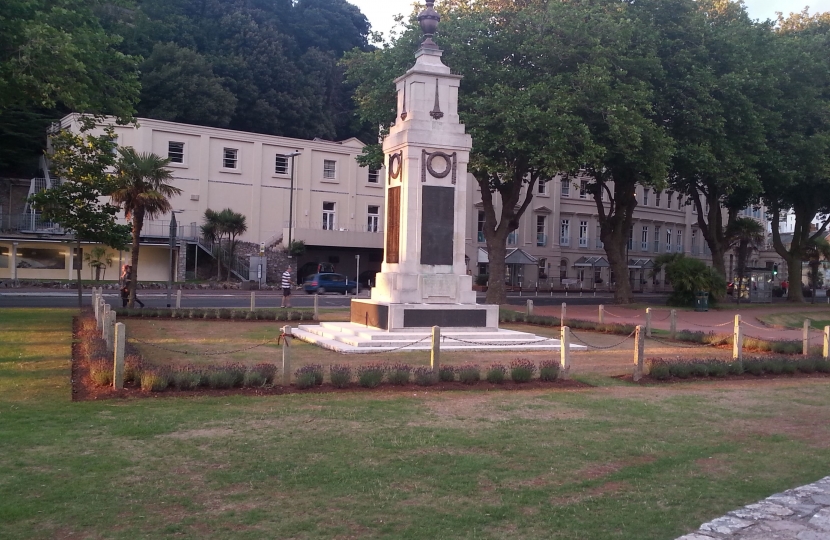
Every week Kevin publishes his very own “Kev’s Column” online. This week he reflects on the Centenary of Britain entering the Great War.
It was billed as “The War to End all Wars”, but it was followed only 21 years later by the outbreak of the most destructive war in human history, so what does the Centenary of World War 1 mean today?
The first thought is to commemorate those who lost their lives in some of the bloodiest battles the World has ever seen. On the first day of the Battle of the Somme, 1st July 1916, the British Army suffered 57,470 casualties, including 19,240 dead. Only 53 Civil Parishes in the whole of England and Wales saw all their men return from the war. None of them are in Devon.
The most notable part of it all for me is that the men who fought on the Somme were not conscripted, they had volunteered to fight. Whilst in World War 2 military conscription was in place before war broke out, for the majority of the First World War the army was a “volunteer force”. That said the pressure in society for men to enlist was akin to conscription in all but name, with those who did not treated as outcasts.
One hundred years ago the world was yet to be shocked by the impact of warfare on an industrial scale. Over the following four years World War 1 would show exactly what this meant. From the aerial bombing of civilians to the use of chemical weapons World War 1 was very different from previous conflicts, laying the path that ultimately lead to the first Nuclear Weapons in 1945.
The effects of the First World War were profound for Britain. The most notable for society was women entering the industrial workplace and doing the jobs only men had done until then. Whilst seen as a necessity of war the women workers not only laid the ground for victory on the battlefield, but also in the struggle for votes and the role women could play in society.
It is an interesting coincidence that in the centenary year of World War 1 the Government is in the process of reviewing the restrictions on the last job that is currently purely male, fighting on the front line. A century ago this would have been unthinkable, but society’s changing view of women, starting from their work during World War 1, has led to it.
This year will also see the Referendum on Scottish Independence, an interesting parallel to the debate about Home Rule for Ireland that was the focus of attention a century ago. Whilst the majority of my ancestors proudly served in Britain's Armed Forces, one of my Great Grandfathers, Patrick Griffin, served in the Canadian Army due to his Irish Roman Catholic roots.
Others will look to the crises and conflicts that are currently raging and wonder if they could, like the Balkan Crisis did a century ago, tip the World into War. Yet a century ago there was no organisation like the United Nations.
Whilst the UN may have its faults, not least being ineffective in stopping the blood-shed in Syria, its system has helped keep the industrialised nations at peace with each other for nearly 70 years. Arguments and disputes aired at the Security Council allow world opinion to press for a diplomatic, rather than military resolution where possible.
100 years ago two alliances that were roughly similar came into conflict. Britain, France and Russia formed one alliance. The Central Powers of Germany and Austro-Hungary the other. Today NATO stands out as the most powerful military alliance in the world, with any potential aggressor aware of the fact an attack on one is to attack all.
There has been some debate this week about how NATO could defend some of its member states from a Russian attack. In reality I see no prospect of Russia wanting to engage in conflict with an alliance capable of mobilising a large military force if needed. The existence of NATO itself is the deterrent as much as the troops it has on the ground at any one moment.
As we look back to the events of one hundred years ago it is hard not to be touched by the many stories of personal sacrifice. Those who died were young men with hopes and dreams. War was sadly inevitable in the Europe of 1914, thankfully it is not in the Europe of 2014.
The key lesson I take from the events of a century ago is that peace is something that can easily be lost, yet costs a great deal to recover.
